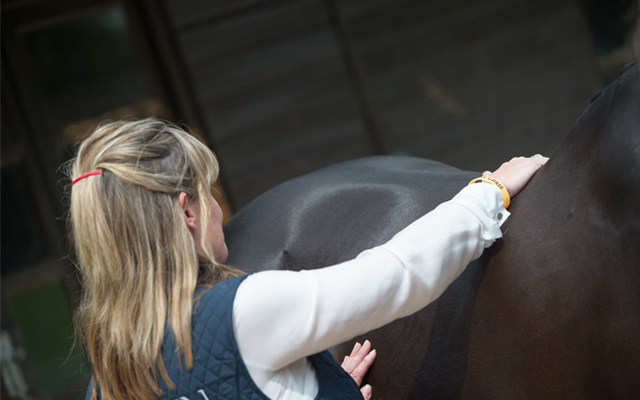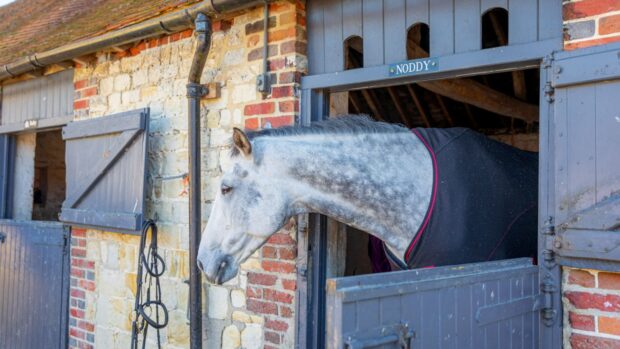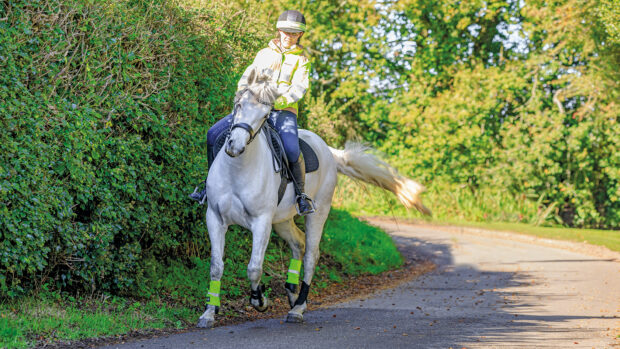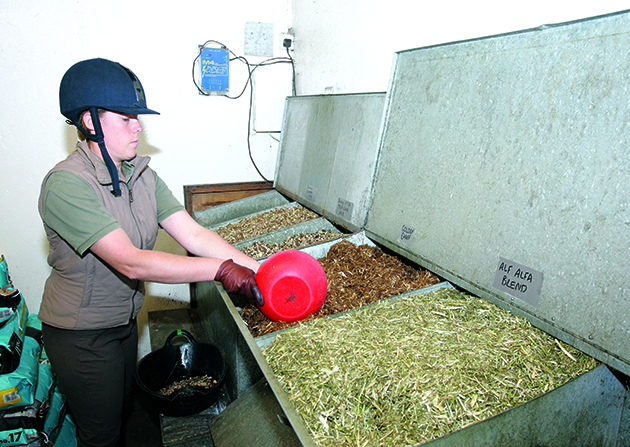Worried about your horse losing weight this winter? Most owners are, but many shouldn’t be. It is natural for a horse’s weight to fluctuate according to the time of year, and preventing this from happening can be bad for their long-term health.
Why letting your horse lose weight could be a good thing
1. The horse’s metabolism is designed around a natural annual weight fluctuation. So in the summer, when forage is plentiful, this is converted to fat and leads to weight gain. In the wild these fat reserves are used in the winter to ensure survival when the temperature drops and there is no grass, resulting in weight loss.
2. Your horse’s metabolic system works in the same way, even though he is unlikely to need these fat reserves. The modern equine lifestyle means domestic horses tend to burn fewer calories keeping warm than those living in the wild.
Continued below…

H&H Feed Week: 6 things to remember when feeding your competition horse
We talk you through the dos and don'ts of feeding the performance horse for optimum condition with the help of
3. “Our winters are no longer always that cold. More critically, however, many horses are not exposed to the extremes of wintry weather. They are stabled with plentiful rugs and do not need extra fat reserves to keep warm,” says H&H vet Karen Coumbe MRCVS.
4. Horses stand still for longer periods during winter, too, due to being stabled. “We want them to be eating for as many hours as possible for their digestive health and to prevent boredom, but leisure animals don’t work as hard as they did in days past,” adds Kath Urwin, manager at the Blue Cross’s equine centre in Rolleston.
5. If a horse does not lose any weight through the winter, there is no room for the natural weight gain in spring and summer. “With rugs and up to three feeds a day, it’s easy for weight to stay on,” adds Kath. “We would expect horses to be in ideal condition or a little over during summer. It’s OK for them to be leaner coming out of winter, especially if field-kept all year round.”
How to get the balance right:
- Assess your horse and plan ahead. Weight loss is far easier in the colder months when your horse’s metabolism is already working to that effect.
- Use a weight tape regularly. Winter coats and rugs can make it harder to gauge condition.
- Treat every horse as an individual, and feed and rug them according to their type and workload.
- Feed plenty of roughage (hay and haylage). This provides warmth and so it should be the crux of every horse’s diet, even those in hard work. Many will need little else apart from vitamins and a supplement containing trace elements and minerals as necessary.
Get more useful feeding advice throughout Horse & Hound Feed Week, which is running from Monday 25 September until Sunday 1 October





